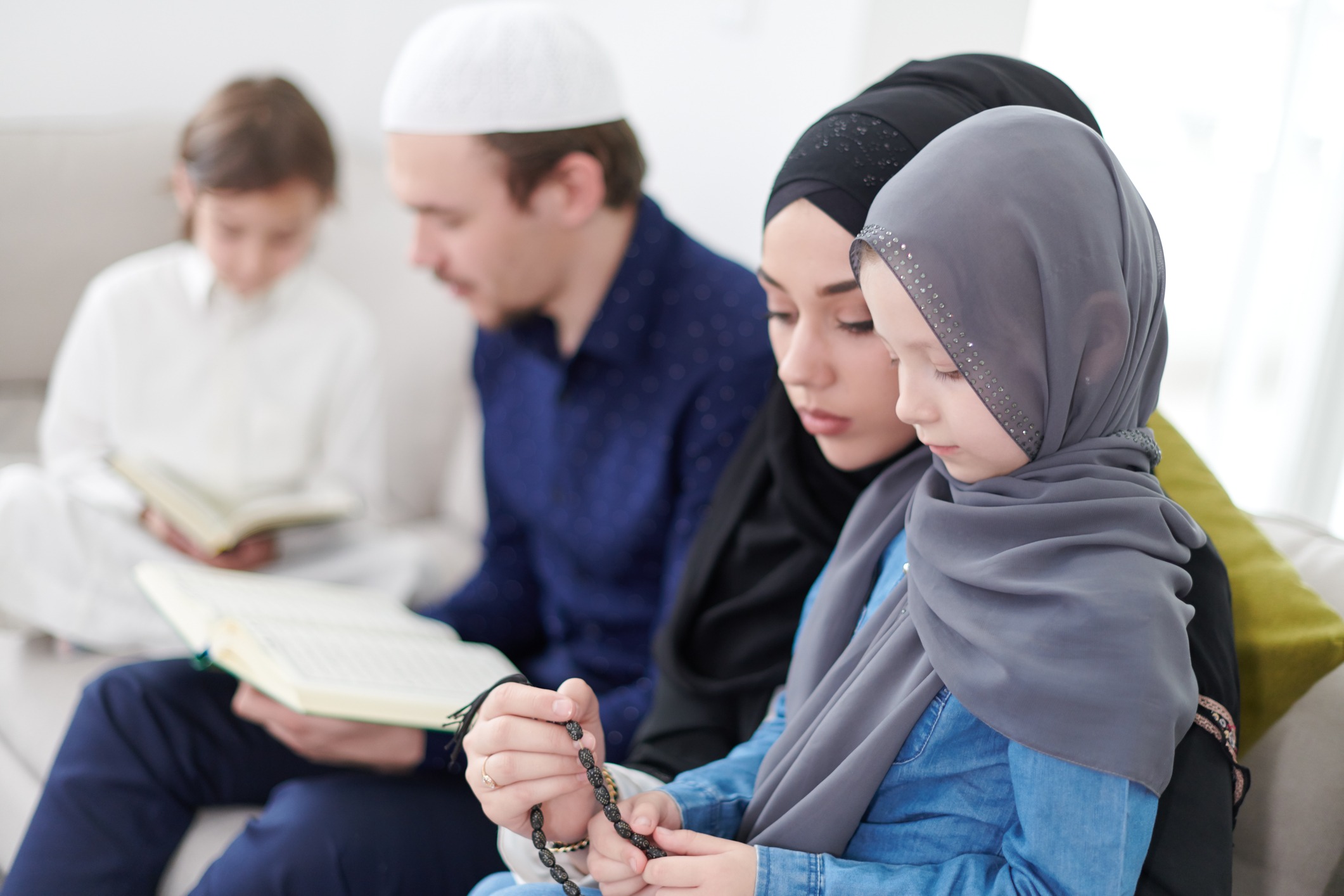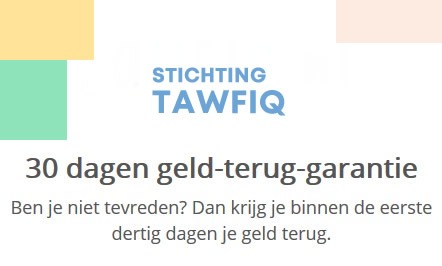 Als docent die regelmatig betrokken is bij de educatie van islamitische tieners, ook uit de streek van Wellerlooi, wil ik graag het belang van islamitische seksuele voorlichting benadrukken. Ik heb waargenomen hoe cruciaal het is dat de jeugd kunnen beschikken over seksuele voorlichting die hun godsdienstige waarden waardeert en hen in staat stelt om verstandige beslissingen te nemen in overeenstemming met hun geloof. In dit artikel zal ik mijn persoonlijke ervaringen delen en uitleggen waarom het een verplichting is voor elke moslimouder om hun kinderen hierin te (laten) onderwijzen.
Als docent die regelmatig betrokken is bij de educatie van islamitische tieners, ook uit de streek van Wellerlooi, wil ik graag het belang van islamitische seksuele voorlichting benadrukken. Ik heb waargenomen hoe cruciaal het is dat de jeugd kunnen beschikken over seksuele voorlichting die hun godsdienstige waarden waardeert en hen in staat stelt om verstandige beslissingen te nemen in overeenstemming met hun geloof. In dit artikel zal ik mijn persoonlijke ervaringen delen en uitleggen waarom het een verplichting is voor elke moslimouder om hun kinderen hierin te (laten) onderwijzen.
A story from the classroom:
In mijn onderwijsomgevingen heb ik de mogelijkheid gekregen om met islamitische tieners uit de omgeving Wellerlooi te werken en hun moeilijkheden op het gebied van seksualiteit te zien. Velen van hen worden blootgesteld aan tegenstrijdige boodschappen en verlokkingen die niet in overeenstemming zijn met hun godsdienstige waarden. Ze hebben nood aan begeleiding die hen helpt om hun seksualiteit te begrijpen binnen de grenzen van hun geloof, zodat ze individuen met zelfvertrouwen en veerkracht kunnen worden.
 Een van de grootste uitdagingen waarmee jonge moslims worden geconfronteerd, is de samenleving en tradities van het land waarin ze opgroeien. Hoewel Nederland een land van tolerantie en diversiteit is, kan de overheidsvoorlichting op het gebied van seksualiteit soms botsen met geloofsovertuigingen. Overigens geldt niet alleen voor geloofsovertuigingen maar ook voor de christelijke, joodse en hindoestaanse waarden. Maar ik beperk mij hier tot de islamitische waarden voor de moslimpubers uit de regio Wellerlooi. De botsing tussen de overheidsvoorlichting en de godsdienstige waarden creëert een afscheiding waarin jongeren zich geconfuseerd en geïsoleerd kunnen voelen. Islamitische seksuele voorlichting is van essentieel belang om deze scheiding te overbruggen en hen te voorzien van de kennis en hulpmiddelen die ze nodig hebben.
Een van de grootste uitdagingen waarmee jonge moslims worden geconfronteerd, is de samenleving en tradities van het land waarin ze opgroeien. Hoewel Nederland een land van tolerantie en diversiteit is, kan de overheidsvoorlichting op het gebied van seksualiteit soms botsen met geloofsovertuigingen. Overigens geldt niet alleen voor geloofsovertuigingen maar ook voor de christelijke, joodse en hindoestaanse waarden. Maar ik beperk mij hier tot de islamitische waarden voor de moslimpubers uit de regio Wellerlooi. De botsing tussen de overheidsvoorlichting en de godsdienstige waarden creëert een afscheiding waarin jongeren zich geconfuseerd en geïsoleerd kunnen voelen. Islamitische seksuele voorlichting is van essentieel belang om deze scheiding te overbruggen en hen te voorzien van de kennis en hulpmiddelen die ze nodig hebben.
The importance of Islamic sex education is also reflected in the sources of our faith, the Quran and Hadith. These sacred writings contain valuable guidance and precepts regarding sexuality and ethics.
Evidence from the Quran:
Surah Al-Isra (17:32) interpretation of the translation: “And do not approach fornication. Verily, it is an atrocity and an evil way.”
Surah An-Nur (24:30) interpretation of the translation: “Say to the believing men that they should lower their eyes and control their passions. That is purer for them. Indeed, Allah is Well Aware of what they do.”
Surah An-Nisa (4:29) interpretation of the translation: “And desire not that with which Allah has endowed some of you over others. For the men there is a share in what they have acquired and for the women there is a share in what they have acquired.”
Surah Al-Baqarah (2:187) interpretation of the translation: “It is lawful for you to go in to your wives on the night of the fast.”
Evidence from Hadith:
Sahih Bukhari, Book 69, Hadith 506:
The Prophet Muhammad (peace be upon him) said: “O youths, whoever of you is able to marry, let him marry, for it is better for his eyes and chastity. And whoever is unable to do so, let him fast, for that will be a protection for him.”
Sahih Bukhari, Book 62, Hadith 4:
The Prophet Muhammad (peace be upon him) said: “O youths, whoever among you is able to marry, let him do so, for it helps in controlling his gaze and his chastity. And whoever cannot, let him fast, for fasting is a shield.”
Sahih Muslim, Book 26, Hadith 5377:
The Prophet Muhammad (peace be upon him) said: “If a man looks at a woman and she looks at him, and neither of them averts his gaze until the other looks away, then that is an arrow from Satan that strikes them both .”
Sahih Muslim, Book 26, Hadith 5391:
The Prophet Muhammad (peace be upon him) said: “O youths, whoever of you is able to marry, let him do so, for it helps him to control his gaze and his chastity. And whoever cannot, let him fast, for fasting diminishes his desires.”
Sunan Ibn Majah, Book 9, Hadith 1846:
Prophet Muhammad (peace be upon him) said: “Marriage is part of my Sunnah (tradition), and whoever does not follow my Sunnah is not from my followers.”
Academic Resources:
To support the value of Islamic sex education for the Islamic identity of Muslim adolescents, several academic resources are available. Here are two relevant sources:
Research by Noura Abdullah Al-Mutairi (2016): “The Role of Islamic Education in Preserving the Islamic Identity of Muslim Adolescents.” This study underlines the importance of Islamic education in maintaining the Islamic identity of Muslim adolescents.
Study by Aisha Sherina Mohd. Nor and Azam Othman (2017): “Sex Education in Islamic Perspective.” This study examines how Islamic sex education can be integrated into the education system of Muslim countries.
Pros and cons:
For:
Islamic sex education promotes positive sexual development, based on the values and norms of Islam.
It helps young Muslims understand their sexuality within the boundaries of their faith and makes them resilient to harmful influences.
Islamic sex education provides a safe environment for open and honest discussions about sexuality, while respecting cultural and religious sensitivities.
In return for:
Some may argue that Islamic sex education can limit the sexual diversity and individuality of young people.
There may be concerns about the lack of specific topics in Islamic sex education, such as contraception and homosexuality.
The integration of Islamic sex education into the mainstream education system can pose challenges in terms of curriculum and policy.
Het belang van islamitische seksuele voorlichting voor moslimpubers uit de streek van Wellerlooi kan niet worden overschat. Het is een taak voor elke islamitische ouder om hun kinderen hierin te onderwijzen, zodat ze kunnen gedijen binnen hun islamitische identiteit. Door islamitische waarden te integreren in de seksuele voorlichting, kunnen we onze moslim jeugd helpen om verstandige beslissingen te nemen en zich te beschermen tegen schadelijke invloeden. Laten we gezamenlijk optrekken omwille van Allah swt om moslimpubers uit de regio Wellerlooi de begeleiding te bieden die ze nodig hebben om op te groeien tot zelfverzekerde, verantwoordelijke en respectvolle individuen in de Nederlandse maatschappij.
Als docent en onderdeel van Stichting Tawfiq begrijpen we de behoefte aan islamitische seksuele voorlichting voor islamitische ouders uit de omgeving van Wellerlooi. We bieden een educatief programma dat vier dagdelen beslaat en specifiek is afgestemd op islamitische tieners. Onze docenten combineren kennis van de islamitische leer met een tolerante en empathische aanpak, zodat onze moslim adolescenten zich begrepen en ondersteund voelen.
For more information about the educational program of the Tawfiq Foundation and how we support Muslim adolescents in their sexual development, please contact us by email or complete the registration form.



 Als docent die regelmatig betrokken is bij de educatie van islamitische tieners, ook uit de streek van Wellerlooi, wil ik graag het belang van islamitische seksuele voorlichting benadrukken. Ik heb waargenomen hoe cruciaal het is dat de jeugd kunnen beschikken over seksuele voorlichting die hun godsdienstige waarden waardeert en hen in staat stelt om verstandige beslissingen te nemen in overeenstemming met hun geloof. In dit artikel zal ik mijn persoonlijke ervaringen delen en uitleggen waarom het een verplichting is voor elke moslimouder om hun kinderen hierin te (laten) onderwijzen.
Als docent die regelmatig betrokken is bij de educatie van islamitische tieners, ook uit de streek van Wellerlooi, wil ik graag het belang van islamitische seksuele voorlichting benadrukken. Ik heb waargenomen hoe cruciaal het is dat de jeugd kunnen beschikken over seksuele voorlichting die hun godsdienstige waarden waardeert en hen in staat stelt om verstandige beslissingen te nemen in overeenstemming met hun geloof. In dit artikel zal ik mijn persoonlijke ervaringen delen en uitleggen waarom het een verplichting is voor elke moslimouder om hun kinderen hierin te (laten) onderwijzen. Een van de grootste uitdagingen waarmee jonge moslims worden geconfronteerd, is de samenleving en tradities van het land waarin ze opgroeien. Hoewel Nederland een land van tolerantie en diversiteit is, kan de overheidsvoorlichting op het gebied van seksualiteit soms botsen met geloofsovertuigingen. Overigens geldt niet alleen voor geloofsovertuigingen maar ook voor de christelijke, joodse en hindoestaanse waarden. Maar ik beperk mij hier tot de islamitische waarden voor de moslimpubers uit de regio Wellerlooi. De botsing tussen de overheidsvoorlichting en de godsdienstige waarden creëert een afscheiding waarin jongeren zich geconfuseerd en geïsoleerd kunnen voelen. Islamitische seksuele voorlichting is van essentieel belang om deze scheiding te overbruggen en hen te voorzien van de kennis en hulpmiddelen die ze nodig hebben.
Een van de grootste uitdagingen waarmee jonge moslims worden geconfronteerd, is de samenleving en tradities van het land waarin ze opgroeien. Hoewel Nederland een land van tolerantie en diversiteit is, kan de overheidsvoorlichting op het gebied van seksualiteit soms botsen met geloofsovertuigingen. Overigens geldt niet alleen voor geloofsovertuigingen maar ook voor de christelijke, joodse en hindoestaanse waarden. Maar ik beperk mij hier tot de islamitische waarden voor de moslimpubers uit de regio Wellerlooi. De botsing tussen de overheidsvoorlichting en de godsdienstige waarden creëert een afscheiding waarin jongeren zich geconfuseerd en geïsoleerd kunnen voelen. Islamitische seksuele voorlichting is van essentieel belang om deze scheiding te overbruggen en hen te voorzien van de kennis en hulpmiddelen die ze nodig hebben.

